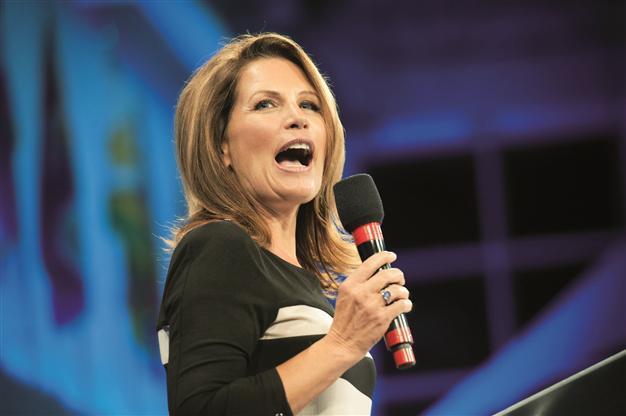US Republican women more feminine than rivals
LOS ANGELES - Agence France-Presse

Michele Bachmann is a good example of the scientific correlation that female Republican US lawmakers look more feminine than their Democratic counterparts. ABACAPRESS photo
Female Republican US lawmakers look more feminine than their Democratic counterparts, according to a study published Sept. 27 based on computer analysis of facial features.Tea Party favorite Michele Bachmann is a good example of the scientific correlation, said the study by two Californian psychology graduates, which looked at features including cheek bones and fullness of lips.
Perhaps counter-intuitively, however, Republican male lawmakers tend to look less typically masculine than their Democratic counterparts, according to the University of California Los Angeles (UCLA) research.
No hairstyles, jewelry or makeup
The study, compiled by feeding portraits of 434 members of the House of Representatives into a computer modeling program, took no account of hairstyles, jewelry or makeup. “Female politicians with stereotypically feminine facial features are more likely to be Republican than Democrat,” said lead author Colleen Carpinella.
What’s more, “the correlation increases the more conservative the lawmaker’s voting record,” she added of the study. “I suppose we could call it the ‘Michele Bachmann effect,’” added Kerri Johnson, the study’s senior author.
The model compared faces based on more than 100 features, including the shape of the jaw, the location of eyebrows, the placement of cheek bones, the shape of eyes, the contour of the forehead and the fullness of the lips.
Carpinella said, “We wanted to get an objective measure of how masculine or feminine a face is.”
Republican men, who tend to exhibit a traditional male ethos by calling for hawkish policies abroad and small government self-reliance at home, have less stereotypically masculine faces than Democrats, the study found.
It may be unnecessary for Republican men to exhibit masculinity through their appearance,” Carpinella said. “Their policy advocacy and leadership roles may already confer these characteristics on them.”
















